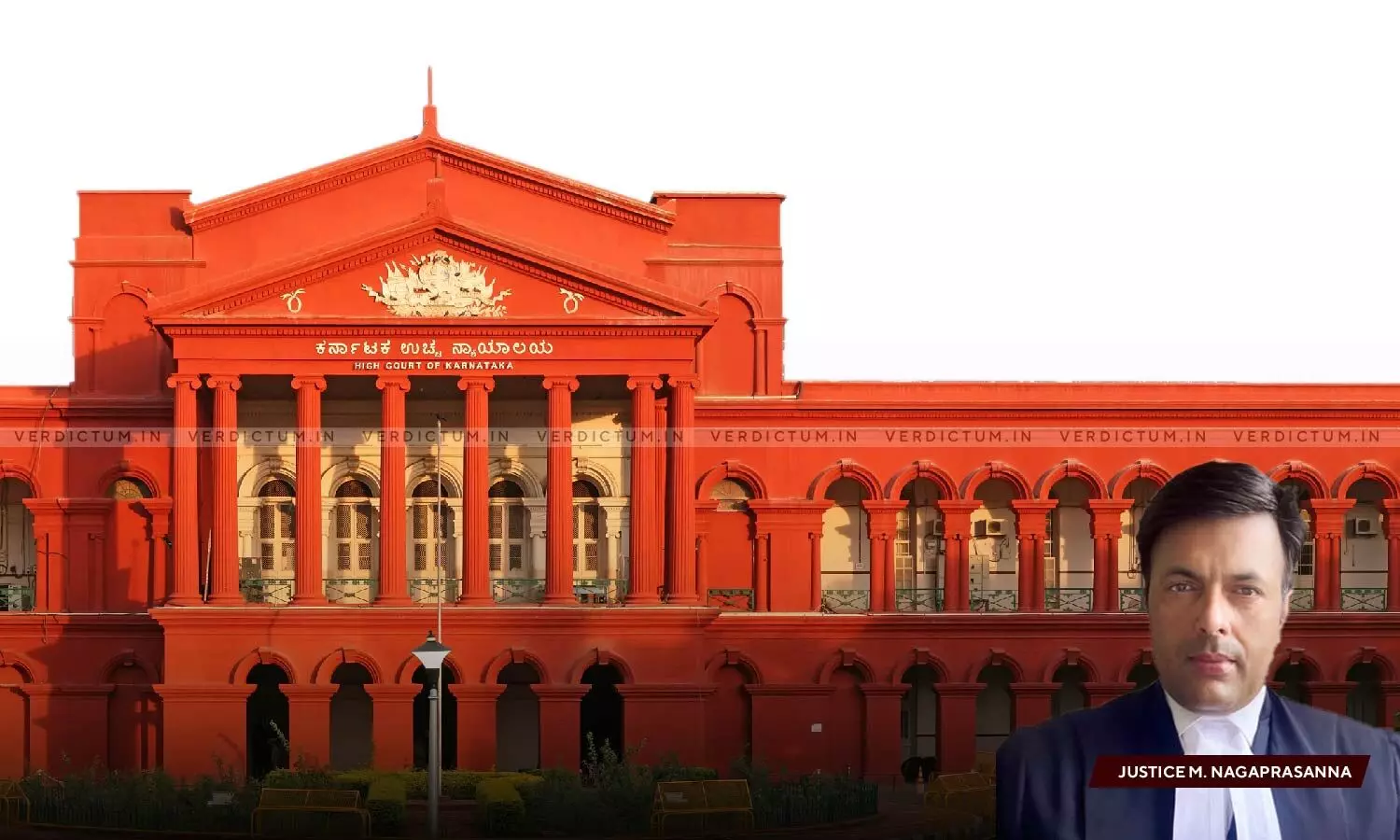
Tenure Of Committee Member Appointed U/S 26(1) Of Karnataka HR&CE Act Cannot Exceed Three Years: Karnataka HC
 |
|The Karnataka High Court held that the tenure of committee members appointed under Section 26(1) of the Karnataka Hindu Religious Institutions and Charitable Endowments Act, 1997 (Act) cannot exceed three years.
The Court dismissed the Writ Petition filed by members of the Committee of Sri Mukambika Temple who sought an extension in their tenure for the entire three-year period until the formation of a new committee takes place.
The Court noted that the timing of the first meeting and the election of the Chairman does not alter the order, appointing the Petitioners as committee members but cannot extend their tenure as it would be against the provisions of the Act.
“Election of the Chairman of the Committee in terms of the Rules at a later point in time, cannot mean that the tenure of the Members of the Committee can be extended, from the date on which the Chairman is elected. All of them initially become Members and the Chairman would be chosen from amongst Members. Therefore, membership has begun from 27-10-2020. Section 26(1) of the Act is unequivocal that it would be for three years. If the contention of the petitioners is accepted, it would be an order contrary to the statute”, the Bench of Justice M. Nagaprasanna observed.
Senior Advocate M. Aruna Shyam appeared for the Petitioners and Additional General Advocate Navya Shekhar appeared for the State.
The Petitioners who were members of the Committee of Sri Mukambika Temple approached the High Court by way of a Writ Petition to challenge, modify, or interpret the order issued by the First Respondent. Specifically, they sought to contest the part of the order that specifies the term, which was intended to commence from the date of the order's issuance until the first meeting of the Managing Committee.
The Petition pertained to the Sri Mukambika Temple, governed by the Act. The temple had a Managing Committee, and the Petitioners, who were members of this committee, including the Chairman, were appointed. According to Section 25 of the Act, the term for committee members was three years. The Petitioners, appointed on the specified date, sought a modification of the order, through a writ of certiorari, to extend their tenure for the entire three-year period until the formation of a new committee takes place.
The Court noted that the facts presented were undisputed and revolved around the duration of the committee members appointed under Section 25 of the Act.
The Bench observed that Section 25 involves the constitution of the Committee of Management by the Third Respondent, and according to Section 26(1), the Committee has a tenure of three years. The order dated October 27, 2020, resulting from the invocation of Section 25, appointed the Committee from the date of the order for a statutory period of three years.
Furthermore, the Court noted that the modification sought by the petitioners was to consider the commencement of the Managing Committee's tenure from the first meeting on April 26 2021, rather than the date of the order's issuance.
However, the Bench emphasized that such an interpretation contradicts the statutory provision. The order explicitly stated that the three-year tenure begins from the date of issuance. Section 26 of the Act specifies a three-year term without indicating the commencement date. The court asserts that the completion of three years from the order's issuance automatically concludes the committee's tenure and the statute's language is clear on the duration.
Therefore, the Court dismissed the notion that the timing of the first meeting could modify the order, observing that the meeting's scheduling was incidental to the petitioners' membership commencement. The election of the Chairman, as per the rules, does not extend the committee members' tenure from the Chairman's election date; all members initiated their terms on October 27, 2020. Accepting the petitioners' argument would contradict the statute's clear provision of a three-year term.
Furthermore, the Court noted that the circumstance of not convening the first meeting immediately does not alter the order establishing the petitioners as committee members. The calling of the meeting was deemed incidental to the petitioners' initiation as committee members.
Additionally, the Bench observed that the Petitioners cannot selectively accept and reject aspects of the order. They willingly accepted and benefited from the order dated 27-10-2020 for three years. Attempting to modify the order when their term concludes was deemed unacceptable, and the Court found no grounds to grant the requested prayers in the petition.
Accordingly, the Court dismissed the Petitions.
Cause Title: Keradi Chandrashekhara Shetty v The Commissioner
Click here to read/download Order